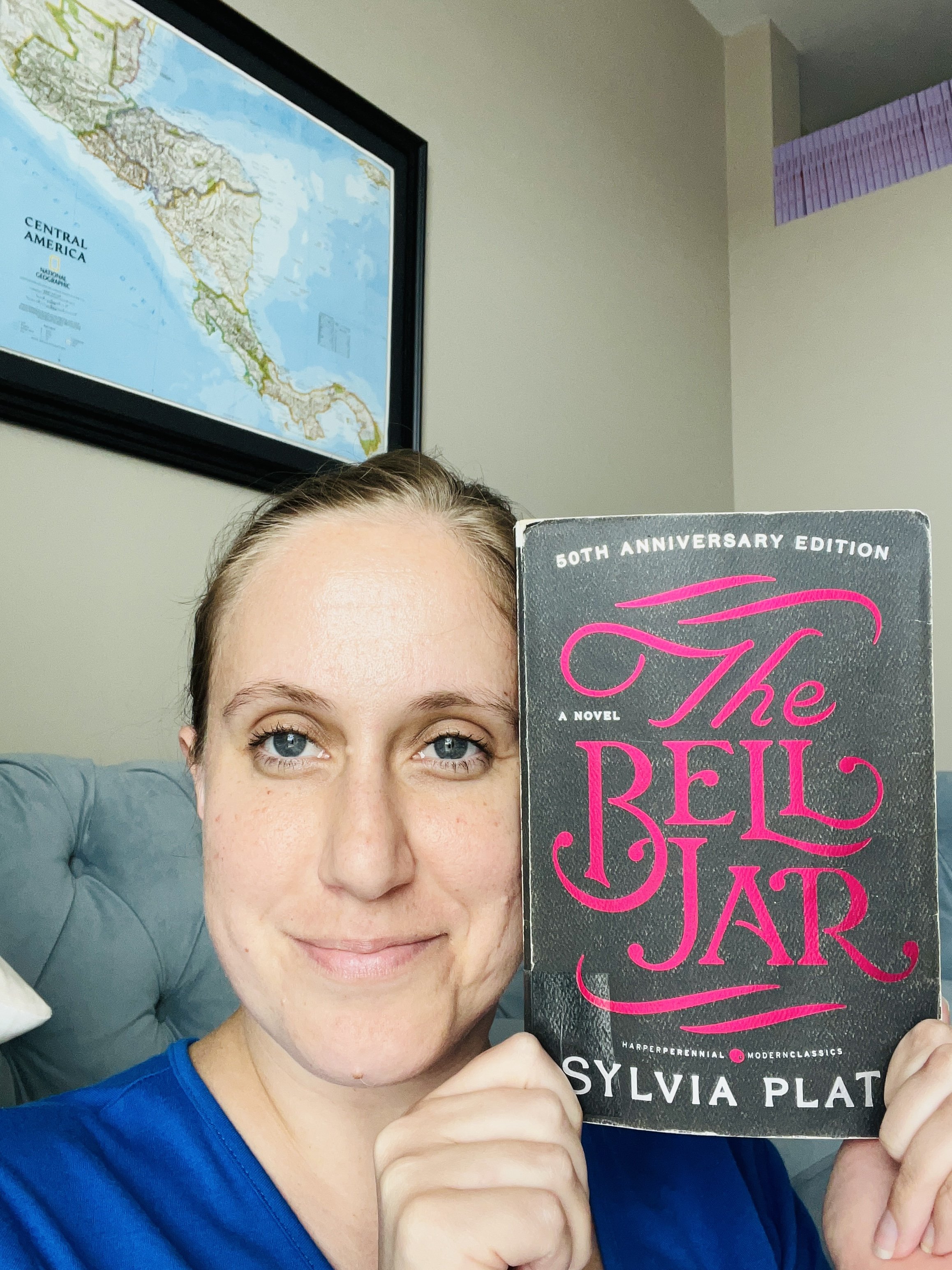The Bell Jar Through a Trauma Lens
It was interesting to read The Bell Jar through a trauma lens. The disassociation of the Main Character, and the subsequent disassociation of the author herself, stood out starkly from almost the very beginning. Esther suffered from what was likely clinical depression, yet there was almost no connection made between the depression and the traumatic events in Esther's life (death of her father at a young age, constant pressure to conform to feminine rolls she did not fit, desire to have sex while receiving mixed messages about sex, a violent sexual assault, and the death of a friend from suicide). Her depression could have stemmed from any one of these things. Put them all together and her depression makes total sense.
The story is a fictionalized version of Sylvia Plath's life (who also experienced the death of her father at the age of 8, was sexually assaulted, and experienced violence at the hands of her husband that may have contributed to a miscarriage). Both the Author and the MC spent months in what were called asylums at that time and underwent shock treatment (a treatment I don't know much about but it sounds horribly inhumane). The entire story (both the fictionalized version and the real version) are so very tragic considering today there are so many other resources available for trauma healing. It makes me so sad.
Still, the novel is beautifully written and might now be one of my favorite books (I do not come by favorites easily). Sylvia Plath was actually most known for her poetry, and you can float through the novel on the caress of her poetic voice. It really is gorgeous. She captures the frustrations of growing up female in a world that did not accept her gifts or dreams--this part I found comforting. I related all too well and consider it another tragedy that this sort of experience still exists in 2022.
Katherine Spearing MA, CTRC is the founder of Tears of Eden, a nonprofit supporting survivors of spiritual abuse and is a Certified Trauma Recovery Practitioner working primarily with clients who have survived cults, high-control environments, spiritual abuse, and sexual abuse. She also provides specialized trauma informed career coaching, as folks with trauma often need extra support for interviewing and networking.
Katherine is the author of a historical romantic comedy, Hartfords, a novel that challenges gender roles in a patriarchal society that will appeal to fans of Jane Austen. Her next book on Spiritual Abuse addresses the survivor’s recovery journey, coming in 2025.
Interested in learning more about religious trauma and Spiritual Abuse? Subscribe to the newsletter.
